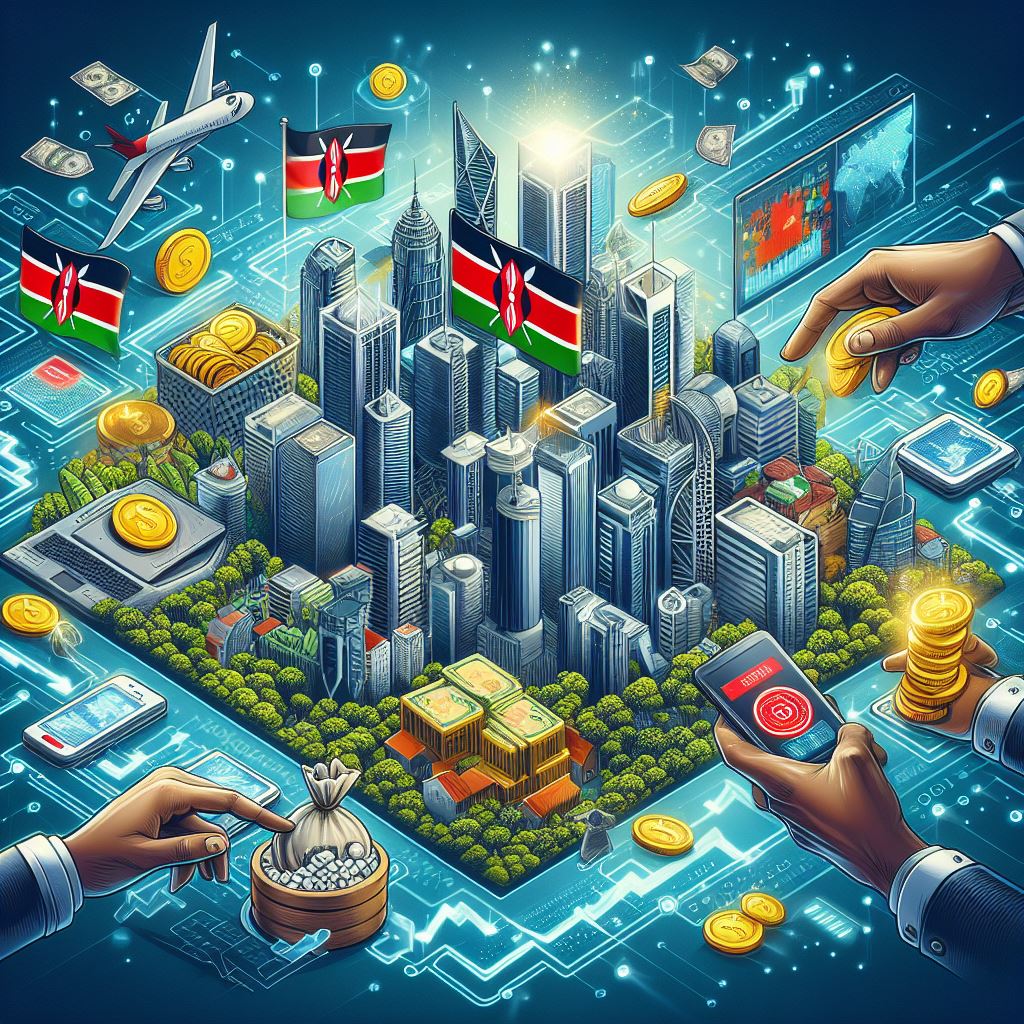Broke but motivated? Kenyan students are turning their phones into income tools! From freelance writing to smart side gigs, you can start small and earn online—no fancy gear needed. Just consistency, free tools, and the right mindset. Start today!
Many students in Kenya are facing tough financial situations. With school fees and housing costs going up, and the daily expenses like food and transport to take care of, relying on limited support from HELB or parents isn't always enough. This puts a lot of pressure on students to keep hustling just to get by while they try to focus on their studies.
But there’s good news. The internet is bringing real chances for students to make money online, right from their phones or laptops. You don't need to be a pro or have a lot of cash to start.
With a little consistency, some basic internet access, and the right attitude, you can turn your free time into cash. In this article, you’ll find easy and practical ways to begin earning online as a student in Kenya, even if you’re just starting out.
Freelance Writing & Blogging
Let’s be real—if you can write decently, thanks to school assignments, you’re already ahead of the game. Freelance writing and blogging are solid ways for students in Kenya to make some extra cash online, especially if you’re just starting out and don’t have much to invest.
Look around: businesses, bloggers, and busy folks always need writers to create content. Whether it’s blog posts or social media captions, the demand is there. Platforms like Upwork and Fiverr can link you up with clients who need help.
Here’s how to get started:
- Write every day – It doesn’t have to be perfect. The more you write, the better you'll get.
- Don’t worry too much about low pay at the start – Everyone has to begin somewhere. Take those first jobs to learn and build your profile.
- Create a simple portfolio – Use Google Docs or start a free blog to show off your work. Your school essays or personal stories can work if they’re written well.
The best part about writing is you can do it from anywhere—even your hostel room or the school library during breaks. As you get better, your earnings can grow too. Some students even start personal blogs that turn into their own businesses
If you’re passionate, patient, and keep at it, this path can bring in more than just cash; it can open up real job opportunities in the future.
What You Need to Get Started
Now that you have an idea of where the money is, let’s talk about what you actually need to begin. The good news? You don’t need anything fancy or expensive to start earning online.
1. Internet Access- This is your most important tool. Thankfully, internet bundles in Kenya have become more affordable. With just Ksh 20–50 a day, you can get enough data from Safaricom’s Tunukiwa bundles, Airtel’s daily offers, or even Telkom’s affordable weekly plans to handle most online tasks. Public Wi-Fi spots and campus networks also come in handy—use them wisely!
2. A Basic Smartphone or Laptop- You don’t need a MacBook or the latest Samsung to start freelancing or blogging. A basic Android phone or an entry-level laptop can do the job. What matters more is how you use it. If your phone can run Google Docs and browse the internet, you’re good to go.
3. Free Productivity Tools- There are free tools out here that make your work easier:
- Google Docs for writing and sharing work
- Canva for designing simple graphics or e-book covers
- Grammarly to help fix grammar and spelling issues in your writing
These tools are beginner-friendly and don’t require technical skills. Most work straight from your browser or have mobile apps that run on low-end devices.
4. Time Management- Being a student is already demanding. But if you want to earn online, you’ll have to make time. Try this:
- Use idle hours like weekends, evening study breaks, or commute times
- Set simple goals like “1 hour of writing per day” or “2 gigs per week”
- Avoid burnout—don’t take on more than you can handle
Balancing school and online work isn’t easy at first, but it gets better. With a little planning and discipline, you’ll find a rhythm that works for you.
Avoiding Scams and Unrealistic Expectations
Once you start searching for ways to make money online, you’ll come across all kinds of offers. Some are legit, but a good number are just scams. And as a student, especially in Kenya where every shilling counts, it’s easy to fall into traps when you're looking for quick cash.
Know the Warning Signs- First, avoid anything that asks for money before giving you work. If someone says you have to “activate your account” with a payment, or promises crazy money for little effort—like “Earn 10K per day by just clicking ads”—run. These are the classic signs of a scam.
Use Platforms You Can Trust- Start with platforms that are already known and used by others. Upwork and Fiverr are good places where you can actually earn. They have proper systems to track your work and make sure you’re paid fairly. If you’re not sure about a site, ask around—someone in your circle has probably tried it or knows someone who has.
Don’t Be Fooled by Overnight Success Stories- Making money online takes time, effort, and patience. It’s not instant. Don’t compare your first month to someone else’s fifth year. Focus on learning the skill, building your profile, and doing good work. The money will follow.
In short: stay sharp, take your time, and don’t let the pressure to make quick money push you into risky situations. You’re building something bigger—and that takes time.
Stay Consistent and Keep Learning
The truth is, earning online doesn’t happen overnight. It takes time, patience, and a lot of learning along the way. But the students who make it aren’t necessarily the ones with fancy laptops or the best internet—they’re the ones who show up every day and just keep going.
Keep Sharpening Your Skills- Even after you land your first online gig, don’t stop learning. Things keep changing online, and the more you know, the better you’ll get. You don’t need to pay for expensive courses either—YouTube, Coursera, and Ajira Digital have free lessons that are actually helpful. You can learn how to write better, use tools like Canva, or even understand how to market yourself better.
Real Kenyan Students Are Doing It- I know students who started by helping people type assignments or manage social media pages. They didn’t have everything figured out from day one. Some of them are now earning enough to pay rent, buy their own things, or even support their family. The point is, it’s possible. Start small and don’t compare your journey to anyone else’s.
Small Steps Add Up- Maybe today you only manage to watch one tutorial, write one email, or update your profile—that still counts. Every small effort you put in builds up over time. It’s better to be slow and steady than to burn out after a few weeks. So, don’t wait for motivation—just create a simple routine and stick to it.
Conclusion
At the end of the day, making money online as a student in Kenya isn’t just a dream—it’s a real possibility. We’ve looked at different paths like freelance writing, virtual assistance, affiliate marketing, and even selling digital products. With a basic phone or laptop, some internet bundles, and free tools like Google Docs or Canva, you’ve already got most of what you nsucceel
But here’s the thing—it won’t work unless you do. The students who succeed are the ones who stay consistent, keep learning, and don’t give up at the first sign of struggle. You don’t need to have everything figured out. You just need to be willing to learn and take small steps every single day.
So here’s your next move: start with what you have, right where you are. No excuses. The internet is full of opportunities—you just have to show up and grab them.

























